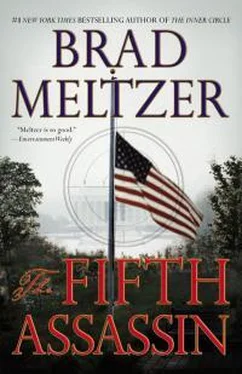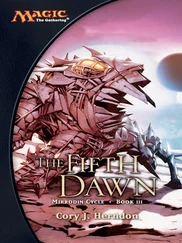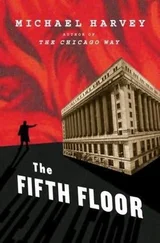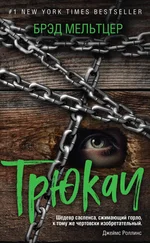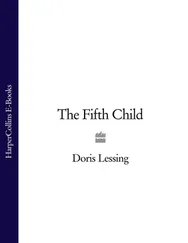Nico.
Nico was the final Knight. And his mission was just beginning.
It was that final thought—of Nico and the mission still to come—that sputtered through Frick’s brain as the red circle shrank into a pinhole and the world went black. That and the fact that he’d been right about one thing: He wouldn’t survive this day.
109
Eighteen years ago
Sagamore, Wisconsin
It was a small funeral. Not by choice.
In a town as watchful and religious as Sagamore, judgments moved even quicker than gossip. Especially gossip like this.
At the close of the funeral, they called on Marshall as one of the pallbearers. His father too. But since a twelve-year-old and a double amputee can’t be relied on to lift anything heavy, he and his dad simply put their open palms on the back of the coffin as it was rolled on the metal scissor-cart out to the hearse.
That was this morning.
It was dark now, nearly ten o’clock. Yet for Marshall, who was sitting alone on the treehouse carpet, in the glow of one little lantern, glaring down through the Plexiglas window at the last few visitors leaving his house, that wasn’t even the hard part. The funeral was already a blur. It’d been nearly a week since his mother crouched down in her walk-in closet, prayed the rosary, then put a gun in her mouth and pulled the trigger. At this point, filled with so much anguish and rage, he just wanted everyone to stop telling him that it would all be okay. Even twelve-year-olds know when they’re being lied to.
“Knock, knock, Marsh—you there?” his father called, rolling out to the treehouse when everyone was finally gone.
Marshall didn’t answer.
“Buddy, you okay? You been up there all night,” his father added.
Still no response. And unlike the past few nights, when Marshall insisted on sleeping in the treehouse, his father didn’t press. Plus, as Marshall knew, even if he did, it wasn’t like his dad could climb up and bring him down.
For that reason, twenty minutes later, Marshall sat up straight in his beanbag chair when he heard someone climbing the ladder rungs nailed to the tree.
“Whoever it is, I hear you,” Marshall warned.
No one replied.
“Beecher, if it’s you, get the hell out,” Marshall added even though he knew that while Beecher’s mom had let him attend the funeral, she had forbidden him to pay any more visits to the treehouse. It was the same with Paglinni. And the rest. No one told him directly, but after a week of sitting alone in a beanbag, Marshall got the point.
“You taking visitors?” a familiar voice asked.
From the ladder, Pastor Riis peered over the floorboards, his normally neat hair looking scruffy and overgrown in the dim light.
“Go away,” Marshall said, disgusted.
“It’s a hard day. I came to see how you’re doing.”
“You shouldn’t be here.”
“Says who?” the pastor challenged.
Shifting in his beanbag chair, Marshall thought about it. He didn’t have an answer.
“I heard the funeral was… uff … I heard it was beautiful,” the pastor said, hoisting himself up and climbing into the treehouse.
“No one showed,” Marshall said, refusing to look up. “It was practically empty.”
“I heard. And I’m sorry I couldn’t be there. I really wanted to.”
Rolling his eyes but refusing to turn and face him, Marshall stared down at the worn and filthy carpet.
“Marshall, you know I couldn’t be there, no matter how much it hurt me. And I promise you, it hurt me.”
Hearing a crack in the pastor’s voice, Marshall looked up. Not out of concern. Or sympathy. Marshall was damaged goods, his eyes filled with a darkness that came from getting a good hard look at what life eventually offers all of us. When Pastor Riis saw those eyes, he knew it was a darkness that Marshall would carry forever.
Riis took a seat on a nearby milk crate. When he was on the pulpit, the pastor stood tall and vibrant. Today he looked ten years older, hunched forward as he fidgeted with a stray thread that dangled from the wrist of his sweater.
“I heard they fired you from the church,” Marshall finally offered.
“They had no choice.”
Marshall nodded, though it still made no sense. What Paglinni saw, when he ran home and the word got out… He told his parents it was Pastor Riis and Marshall’s mom. But the pastor wasn’t even there. It was Riis’s wife who—Marshall closed his eyes. “Why didn’t you tell them the truth?” he said.
“She’s my wife, Marshall.”
“But she’s the one who—”
“She’s my wife . Bound by God. To care and protect,” he insisted in that voice that could keep an entire town quiet for hours at a time. “Nothing would’ve changed if people heard the truth. Not for any of us.” Pausing a moment, he added, “That includes your mom too.”
Grabbing the side of the beanbag chair, Marshall pinched it until he was squeezing just a single bean of foam between his thumb and his forefinger.
“I know you’re thinking something, Marshall. Just say it.”
Marshall squeezed the bead of foam even tighter.
“You want to know about my wife, don’t you? And what she and your mom—”
“Don’t talk about my mom,” Marshall growled.
“Then tell me what you’re thinking. Tell me something.”
Twisting lower in the beanbag, Marshall felt a swirl of questions racing through his brain. He did want to know about the pastor’s wife. He wanted to know how long it went on, and how serious it was, and if anyone else knew. But more than anything else, he wanted to know if his own mom… what she did with the gun… He wanted to know if she was in love, or did she just hate having to take care of him and his dad?
But instead, Marshall said nothing, squeezing the bead of foam so hard, it flattened in his fingertips.
“Marshall, I can’t pretend to have known your mom very well,” Pastor Riis finally said. “But I do know this. Your mother loved you. And despite what you’re so intensely feeling, she loved your family.”
“That means you don’t know the answer.”
“No. It means everything is complicated. No one has all the answers.”
It was as true a statement as Pastor Riis had ever uttered, but that didn’t mean it helped Marshall, who was still glaring down at the carpet.
“Let me ask you this, Marshall. When a tornado hits, which is a better use of your time: wondering why your house blew down—or figuring out how to rebuild?”
“You gave that speech this past Easter. This is where I’m supposed to say that I need to rebuild.”
“You disagree?”
“If you don’t figure out why the house blew down, how can you rebuild it so it’s strong enough so that it won’t happen again?”
“You’re missing the point, Marshall. Even the strongest house can be knocked down by a big enough tornado. And those really big ones? There’s no predicting their path, or trying to understand, much less control, what can’t be.”
“So you’re saying my mom’s a tornado?”
“No, what I’m saying is, you already have all the tools to build your house. And I promise you one thing: It’ll be a great one.”
Marshall gave no answer.
“I found a new parish. It’s a small one,” the pastor finally said. “In Toledo.”
Marshall nodded.
“And I heard you’re moving to Michigan,” Riis added.
“My dad’s sister. If we stay with her, she said she’d help with my dad.”
“Family’s important,” the pastor agreed.
Shifting again in the beanbag, Marshall slowly looked up, glancing over at the pastor.
“Y’know that day when your basement flooded,” Marshall began, “I stole a stack of magazines that were down there.”
Читать дальше
